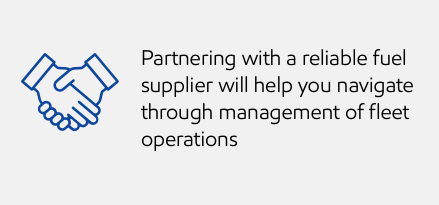Diesel will continue to contribute to the global oil demand growth, according to McKinsey & Co, driven by increasing commercial and industrial activities. This is especially true in the Asia Pacific (APAC) region, with the Asia Pacific Fleet Management Market Analysis (2017-2023) report forecasting a 19.9% CAGR in the fleet management sector.
There are a few key factors driving the growth of freight and logistics sector in this region. One of which is the thriving industrial sector, which is a key contributor to this growth. As production levels in various industries increase, fleet managers too will need to ramp up their fleet size to cater to the demands of sales and supply.
Another key factor that’s driving the demand for fleet management and logistics services is the booming e-commerce sector in APAC. Over 50% of global online retail sales comes from the APAC region as reported by the Asia-Pacific B2C e-Commerce Market 2018 report. The flourishing e-commerce sector, coupled with consumers’ expectations for quicker delivery timelines are compelling companies to ensure their fleet size is robust enough to meet industry demands.
While these rosy business prospects serve as good news for companies, the responsibility for this portion of the supply chain lies on the shoulders of fleet managers and the solution to meeting demand may not always lie in an increase in fleet size. Fleet managers are expected to juggle between expanding the operations and ensuring cost and operational efficiencies. Achieving equilibrium between the two might not be easy but here are some tips to help with addressing evolving challenges:

1. Identify and partner with a reliable fuel supplier
Fuel is easily the largest expenditure of an average fleet’s operating budget, so fuel managers should look for ways to get the best possible return of investment amidst the uncertainties of fuel prices. It is also wise to opt for the right diesel formulation that can help ensure a fleet stays on the road with as little downtime as possible.
Fleet managers should partner with a reliable fuel supplier, especially one with a reputation for quality throughout the diesel fuel supply chain – from inception to handling and delivery. A good fuel supplier understands the crucial role fuel plays in fleet operations, and implements measures such as strict qualifications for carriers, regulatory awareness, product quality integrity and high safety focus to avoid mistakes that could present costly issues for a fleet.
By partnering with a fuel supplier, fleet managers can navigate through these complexities as they focus on other key aspects of fleet management.
2. Equip fleets with the right vehicles
Many fleet managers usually do not have the final say in selecting the vehicles that make up their fleet. In a case when there are ‘too many cooks for the soup’, business executives, procurement managers and drivers often chime in with their views and bias, making the selection process more tedious than it should be. Furthermore, Asian fleet operators or managers prefer to replace vehicles with models that are similar to those in their existing fleet because of familiarity and preference.
With a growing fleet size and operations, there are many more considerations to take into account, with lesser room for error. Fleet managers need to be open to options that may deliver better outcomes in terms of mileage, vehicle maintenance costs, and reliability in the long run. Informed decisions should be made based on analyzing numbers, vehicle specifications and expert opinions, which are all likely to lead to the right decision.
3. Prioritise maintenance and upkeep of vehicles
Fleet managers may sometimes fall into the trap of putting vehicle maintenance as a lesser priority, especially during peak periods, with the notion that it is better to have more vehicles on the road to get the job done.
That said, poorly maintained fleet vehicles are more prone to downtime, which may not be profitable to the company in the long run. Having a strong maintenance policy will bring direct benefit to businesses because:

It reduces the likelihood of accidents arising from vehicle defects, which may result in liabilities

It lessens the need to keep purchasing new vehicles to replace faulty ones, which adds to the total operational cost
4. Invest in training and retaining drivers
Talent is a strategic asset to a company, especially in the field of fleet management where drivers don’t just play a pivotal role in the fulfilment process. They are also crucial in helping fleet managers achieve operational excellence. By having aptly-trained drivers on the road, the likelihood of error and accidents is lower, and drivers will be able respond accordingly should minor issues occur while fulfilling their tasks.
Educating drivers with the right driving habits and techniques, such as going easy on the brakes, intelligent clutch control and reducing unnecessary idling of engines, will also help fleet managers save on fuel expenditures.
Apart from training, fleet managers should also look at ways to empower and boost drivers’ morale, as driving commercial vehicles can be a thankless job. A well thought-out incentive or initiative to motivate drivers is necessary, and is good for the company, and the fleet operations in the long run. The last thing fleet managers need is reliable drivers leaving the job jaded, which will directly impact operations and productivity.
A balancing act
It will never be easy for fleet managers to juggle between the demands of an expanded fleet operation, and management’s expectations to achieve operational efficiencies. While these pain points are inevitable, these tips can help alleviate the challenges that these pressures bring to the company, as well as the fleet managers themselves.
To learn more about which diesel product can provide the best benefits for your business, ExxonMobil recommends consulting with your fuel supplier and other industry leaders about the ways in which diesel can work harder for you to stay ahead in a rapidly changing industry.

